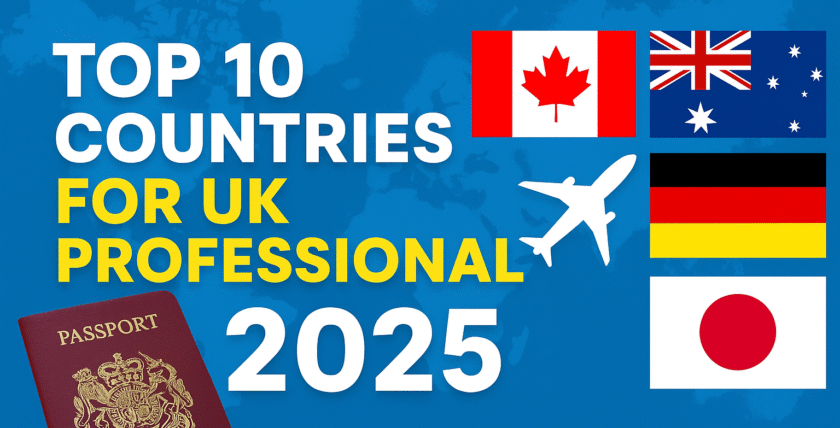UK New Immigration Rules 2025: What Skilled Workers Need to Know – The UK government has implemented significant changes to immigration policies affecting skilled workers. These updates, effective from 22 July 2025, introduce stricter eligibility criteria, higher salary thresholds, and revised qualification requirements. This guide provides an in-depth overview of these changes and their implications for prospective and current skilled workers.
Overview of Key Changes
1. Increased Salary Thresholds
The minimum salary requirement for the Skilled Worker visa has been raised to £41,700 per year, aligning with the government’s objective to attract higher-skilled talent and reduce reliance on lower-paid migrant labor. This adjustment means that many roles previously eligible for sponsorship may no longer qualify unless they meet this new threshold or are on the Shortage Occupation List. Centuro Global
2. Revised Qualification Requirements
Effective from 22 July 2025, the UK has elevated the skill level for the Skilled Worker category back to RQF Level 6 (degree-level qualifications). Consequently, many roles that were previously eligible for sponsorship under lower qualification levels are now ineligible unless they meet the new criteria. Squire Patton Boggs
3. End of Overseas Recruitment for Social Care Workers
The UK government has ceased overseas recruitment for social care roles as of 22 July 2025. This policy aims to encourage domestic workforce development but may lead to staffing challenges in the sector. House of Commons Library
4. Longer Residency Requirement for Settlement
The path to Indefinite Leave to Remain (ILR) has been extended from 5 years to 10 years for most skilled workers. However, exemptions exist for highly skilled workers who demonstrate exceptional contributions to the UK economy or society. Financial Times
5. Increased Immigration Skills Charge
The Immigration Skills Charge has been raised by 32%, increasing the cost for employers to sponsor skilled workers. This change may impact employers’ willingness to sponsor visas, particularly for roles that no longer meet the new salary or qualification thresholds.
Implications for Skilled Workers
For New Applicants
-
Eligibility Criteria: Ensure that your job offer meets the new salary and qualification requirements.
-
Documentation: Prepare to provide evidence of your qualifications and salary to support your visa application.
-
Employer Sponsorship: Verify that your prospective employer is on the list of approved sponsors and is willing to meet the increased costs associated with sponsorship.
For Current Visa Holders
-
Visa Extensions: If you are applying for an extension, ensure that your role continues to meet the eligibility criteria under the new rules.
-
Occupation Codes: Be aware that some occupation codes may no longer be eligible for sponsorship unless they meet the new requirements.
-
Settlement Plans: Plan for the extended residency requirement for ILR and consider how this may affect your long-term plans in the UK.
Strategic Considerations
-
Sector-Specific Impact: Industries such as healthcare, engineering, and IT may experience varying impacts based on the new rules. It’s essential to assess how these changes affect your specific sector.
-
Alternative Visa Routes: Explore other visa options, such as the Global Talent Visa or the Innovator Founder Visa, which may offer more flexibility depending on your qualifications and career trajectory.
-
Legal Consultation: Given the complexity of the new immigration rules, consulting with an immigration lawyer or advisor can provide personalised guidance and ensure compliance with the updated requirements.
Final Thoughts
The UK’s new immigration rules for skilled workers in 2025 represent a significant shift towards prioritising higher-skilled talent and reducing reliance on lower-paid migrant labour. While these changes may present challenges, they also offer opportunities for skilled professionals who meet the new criteria. Staying informed and proactive in understanding and adapting to these changes will be crucial for successfully navigating the UK’s immigration landscape.
Also See:


